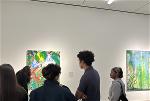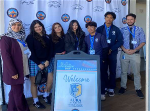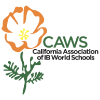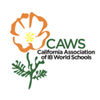By Brent Davis and Maher Oueida
"What do I believe in? Why do I believe it? Are those reasons valid?" These are some of the central questions explored in the Theory of Knowledge (TOK) course, part of the International Baccalaureate (IB) curriculum. This course encourages students to critically examine knowledge, question sources, and engage with diverse perspectives. By developing these skills, students are better equipped to navigate differing opinions and various streams of information, laying the groundwork for a lifetime of learning.


TOK is essentially a course in epistemology—the study of knowledge. It invites students to ask, "How do we know what we know?" Critical thinking begins with the ability to evaluate information, requiring us to question its origins and methods of acquisition. The course also examines how different disciplines, such as history, behavioral science, and natural sciences, approach knowledge, with a strong focus on ethical considerations. This reminds us that knowledge, without meaningful relationships, has limited value. As Scripture says, "Knowledge puffs up, but love builds up" (1 Corinthians 8:1).

At AURA, we strive to develop both strong minds and strong character, grounded in relationships that edify and enrich.
"What do I believe in? Why do I believe it? Are those reasons valid?" These are some of the central questions explored in the Theory of Knowledge (TOK) course, part of the International Baccalaureate (IB) curriculum. This course encourages students to critically examine knowledge, question sources, and engage with diverse perspectives. By developing these skills, students are better equipped to navigate differing opinions and various streams of information, laying the groundwork for a lifetime of learning.


TOK is essentially a course in epistemology—the study of knowledge. It invites students to ask, "How do we know what we know?" Critical thinking begins with the ability to evaluate information, requiring us to question its origins and methods of acquisition. The course also examines how different disciplines, such as history, behavioral science, and natural sciences, approach knowledge, with a strong focus on ethical considerations. This reminds us that knowledge, without meaningful relationships, has limited value. As Scripture says, "Knowledge puffs up, but love builds up" (1 Corinthians 8:1).

At AURA, we strive to develop both strong minds and strong character, grounded in relationships that edify and enrich.















